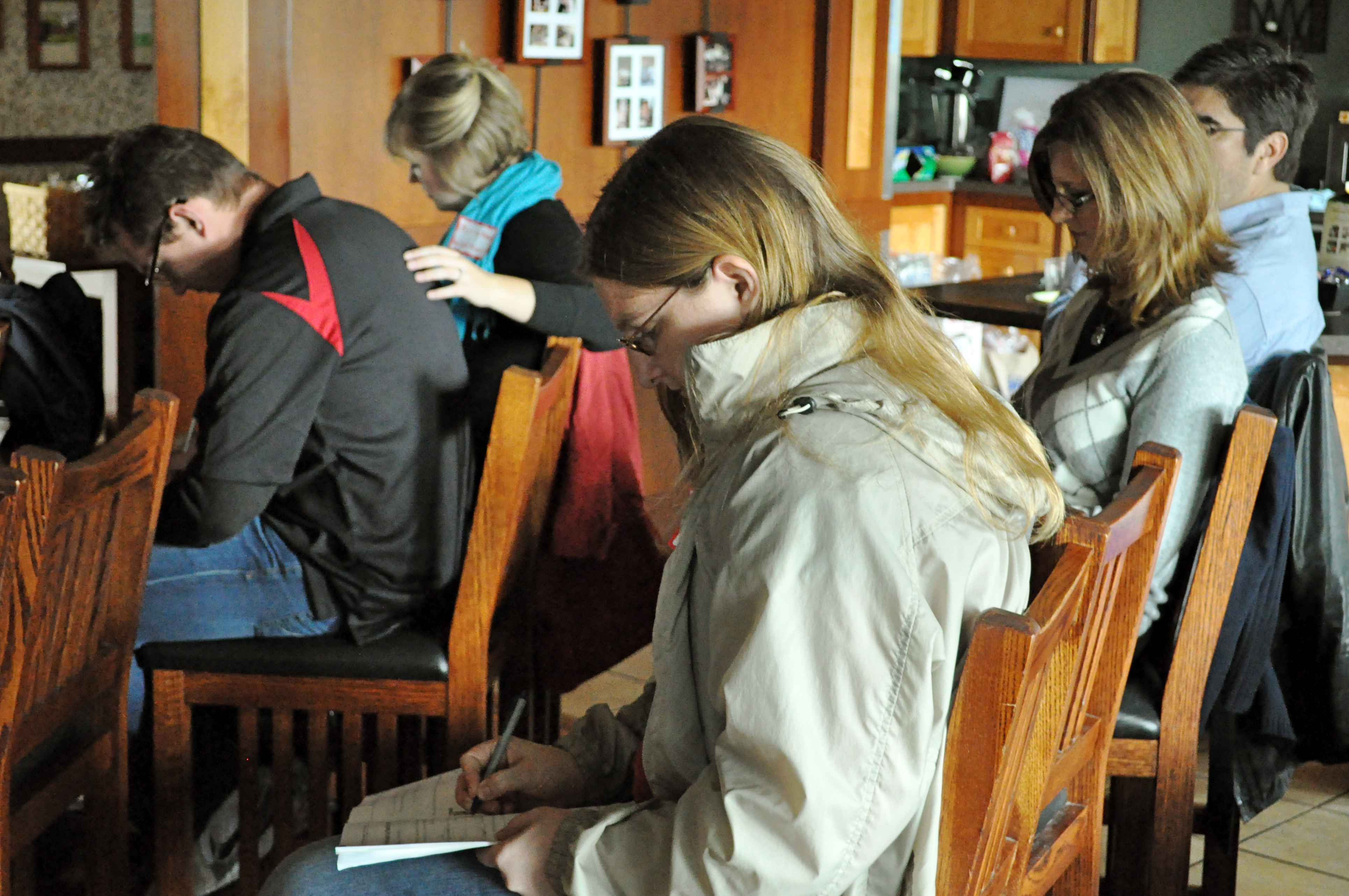Amid power outages and pouring rain, 14 young couples sat together in a barely lit Collegium Saturday morning, quietly absorbing Gary Oliver’s teaching at the third annual Couples Retreat. Oliver enlightened attendees like Ilsa and Matthew Braun on the weekend’s topic, “The Power of Healthy Conflict.”
“Neither of us want to be the disheartened, disconnected 40-somethings with a cold marriage, no holding hands or anything,” said sophomore Ilsa Braun, 26, with a laugh. “Both of us are pretty pleased with our marriage, but we feel like there’s still room for improvement.”
The Brauns joined other married, engaged and pre-engaged couples for a session on Friday evening, as well as three more on Saturday. Vice president of student development Chris Grace and his wife Alisa hosted the event along with Oliver, who is executive director of the Center for Relationship Enrichment
According to Grace, the CRE partners with at least 22 universities to counsel students and provide relationship training. Grace, who secured a grant to bring the retreat to Biola, expressed his enjoyment of communicating with young couples before major problems set in and seeing the “lights go on” when they gain new understanding.
“If we can get involved at the foundation, we can change the trajectory of relationships,” said Alisa Grace, referring the goal of the weekend.
During the sessions, Oliver identified the dangers of a reactive cycle in which one partner pushes emotional “buttons” and the other partner reacts, pushing buttons in return. Retreat-goers learned about the workings of the reactive cycle, how to break it, and how to cultivate a Christ-centered relationship.
“Most people want to just get through problems. We want to grow through our conflicts,” Oliver explained Saturday morning.
In between sessions, participants had time to practice their new communication skills and work through issues in their individual relationships. The personal involvement of each couple is very important, according to Grace, who explained that the retreat is only one step of the process:
“The couples take a pre-assessment before the retreat and will have the opportunity to attend a follow-up retreat in one month,” he said.
For the Brauns, keeping their marriage strong is vital to the larger process of building new relationships at church and school after their recent decision to relocate closer to Biola.
“As far as the age of students, the demographic, and the marital status, it’s a very specific sector, which I fall out of,” said Ilsa about her Biola experience. “So I can feel kind of separated form the rest of the community.”
Ilsa, an English major in the Torrey Honors Program, is hoping to go on to grad school to become a professor. Oliver said the conflict training provided during the weekend will be a lifelong benefit to Ilsa and her fellow attendees.
“Probably 90 percent of what we talk about will apply to other relationships,” he said. “You save yourself a lot of headaches and heartaches.”







